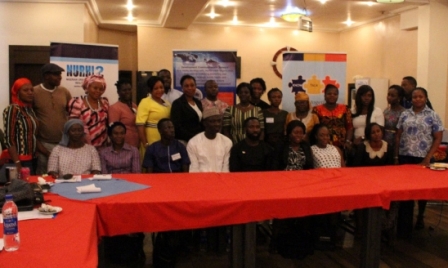• Says media coverage is low

Amid calls on stakeholders to step up efforts towards urgent reduction of Nigeria’s escalating high/ maternal death rate, journalists have been urged to join the fray by making family planning reportage a priority.
This was the highlight of a two-day training tagged “Spitfire Advocacy Training for Family Planning,” organized in Lagos by the Development Communications (DEVCOMS) Network in partnership with the Nigerian Urban Reproductive Health Initiative Phase 2 (NURHI 2) Bill and Melinda Gates Foundation (BMGF) to explore ways of making family planning a social norm in the country while also eliminating the supply and demand barriers to contraceptives use.
Giving the overview of the training, NURHI official, Mr. Adewale Haasarup observed that media coverage of issues relating to family planning is low and disclosed that the purpose of the ‘spitfire’ training was to build the capacity of journalists in advocacy skills and techniques. According to him, the training was also designed for participants to have a refreshed and common understanding on Lagos NURHI 2 project.
Also speaking at the training, NURHI Kaduna State Team Leader, Mr. Kabir M. Abdullahi, described family planning as a life saving activity. He defined the word ‘spitfire’ as a strategic social communication that uses a stepwise process to carefully target and influence policy or decision that affect aspects of institutional or societal fabric for the common good of all or a greater majority of people. He therefore charged journalists to adopt the spirit of spitfire in order to tackle issues concerning family planning until a result is achieved.
In view of the large number of women in the country who lose their lives as a result of pregnancy complications, Abdullahi wants the participants through their various channels to write and broadcast compelling reports aimed at monitoring government investments and actions on family planning and disseminate information to the public on governance’s performance.
In the spirit of ‘spitfire,’ he further said journalists should communicate public perception of government’s support of family planning activities and engage in strategic dialogues with policy makers and other leaders on family planning issues in order to drive change on issues relating to family planning.
“We need media stations to amplify the benefits of birth spacing services and then create slots where people can be educated about the benefits of life saving of contraceptive utilization and how it can help improve the life of women and also the consequences of not using the these services.
“At the end of the day what is important is that we should be able to reduce the incidences of death as a result of too frequent birth and lack of spacing of those births. Contraceptive utilization in Nigeria is about 15%, but for modern contraceptive it is about 10% that is, only one woman out of every 10 women is likely to be using contraceptive in Nigeria.
“Now, if you disaggregate the situation elsewhere in Nigeria, you also look at North West Nigeria has maternal mortality ratio of about 1025 per 100, 000 live birth and then you compare that with the south west Nigeria where the maternal mortality is about 165 per 100 000 live birth, you also look at the North East where the maternal mortality death rate is the heaviest – 1,549 per a 100, 000 live birth, it will give you an idea of what the case may be in situation of death of women as a result of maternal mortality which is the death of woman from conception to 42 days after delivery.
“Now women that are dying, particularly if you compare it to the geography of Nigeria, for every one woman that dies in the South West of Nigeria there are six women that are dying in the North East/North West of Nigeria and it’s worse for North East. With the insurgency that happened there, it is even worst now. Again, a lot of women in the IDP camps give birth and inability of the government to care for these women them contributes to the situation and the scenario is very bad,” Abdullahi said.
According to the training organizers, media increase in family planning reportage will help reduce myths and misconception surrounding family planning and increase knowledge of contraceptives options and many other benefits to the general public.

